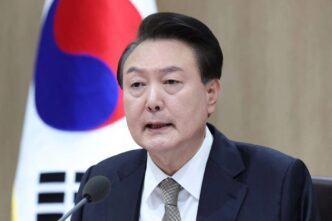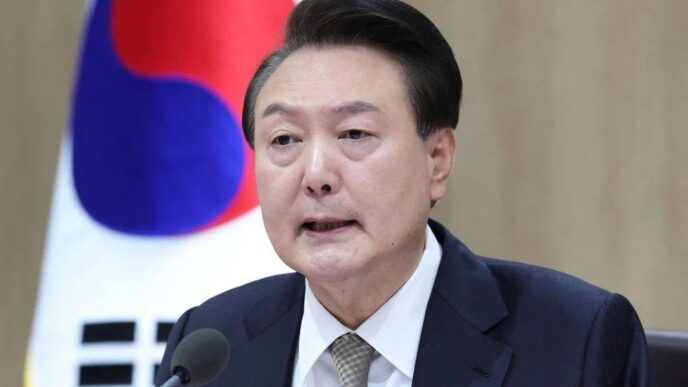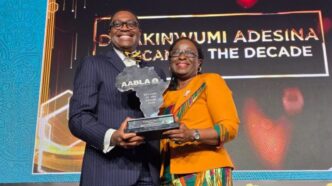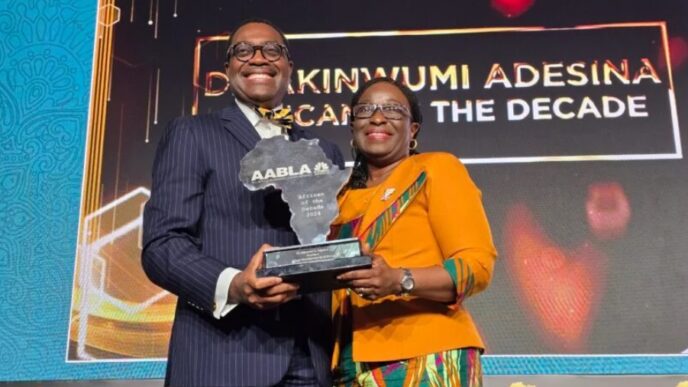Vice-President Kashim Shettima has asked banks to address cash scarcity at the automated teller machine (ATM) and point-of-sale (POS) related issues.
Speaking at the bankers’ committee retreat in Abuja on Friday, Shettima said Nigerians are complaining about the unavailability of cash at bank ATMs and the scarcity is impeding efforts to ensure financial and economic inclusion.
Shettima, who was represented by Tope Fasua, special adviser on economic affairs, urged banks to address some unethical practices by POS operators causing cash scarcity.
“We would like to take this opportunity to appeal strongly to the committee to urgently clear up thorny issues in the sector, some of which are impeding the efforts at financial and economic inclusion,” Shettima said.
Advertisement
“Nigerians complain bitterly that they are unable to access even minimal cash when most needed.
“There seems to have been some moral hazard and adverse selection problem with the involvement of street-side PoS merchants.
”Nigerians complain about high and arbitrary charges and exploitation by rogue agents, which we are sure you will be able to tackle with concerted efforts.”
Advertisement
Citing the recent branch openings by Nigerian banks in France, Shettima said the country’s financial institutions have shown dominance globally.
On November 29, the United Bank for Africa (UBA) said it has signed a business cooperation deal with the French government to commence full banking operations in France.
Zenith Bank also announced the inauguration of its services in Paris.
He also cited the concept of new capability development as propounded by Ricardo Haussman, a professor at the Harvard Kennedy School.
Advertisement
“It suggested that a country should try using technology to export capabilities that it sees as a comparative advantage,” he said.
“Banking is one sector we have excelled at over the years. It is, therefore, a valid strategy for you to consolidate upon, as you continue to excel.
“The recent opening of Nigerian bank branches in France is a good testimony in this direction.”
Shettima asked the bankers’ committee to strengthen the management mechanisms to tackle risks that come with constant change in the banking system, including fintechs.
Advertisement
“This has greatly transmogrified in recent times, with the incursion of different types of FINTECHs, Neobanks, agency banks and other arrangements directed at improving financial inclusion,” the vice-president said.
“There are also the implications of cryptocurrency and decentralized finance on banking as we know it.
Advertisement
”These developments have profound effects on the retail segment of the market, and so our banks must continue to be deft and nimble even in the face of higher capital requirements.”
‘NIGERIANS HAVE CUT DOWN ON FOREIGN TRAVELS’
Advertisement
Shettima said monetary policy reforms and unification of foreign exchange (FX) rates are yielding positive results.
He said the results include how Nigerians have cut back on some foreign travels, and foreign education has slowed down to the extent that many foreign universities are feeling the pains.
Advertisement
“There is now more focus on local educational institutions, and many world-standard facilities have now debuted in Nigeria,” he said.
“The weakening of the Naira has also resulted in a spike in exports as the Marshall-Lerner principle in economics has kicked in for Nigeria.
“The principle states that a nation is likely to see an increase in exports and gain from currency devaluation if exports are price elastic.”
He said the results also include a trade surplus of $4.5 billion, discouraging price elastic imports, and encouraging local value-added production.
“In the first quarter of 2024 Nigeria saw a trade surplus of four billion dollars, which increased to 4.5 billion dollars in the second quarter,” Shettima said.
“The Gross Domestic Product (GDP) growth rate of 3.46 per cent seen in the third quarter was driven largely by non-oil exports as well.
”This is a validation of the stated commitment of the government to diversify the economy.”
The vice-president asked the banks to develop more initiatives towards the financing of micro, small, and medium enterprises (MSMEs).
Shettima also asked that they continue to support the efforts of the federal government in the area of consumer credit culture.
The National Bureau of Statistics (NBS) on Friday said Nigeria recorded N5.81 trillion trade surplus in the third quarter (Q3) of 2024.
Add a comment












